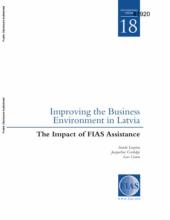Land Library
Welcome to the Land Portal Library. Explore our vast collection of open-access resources (over 74,000) including reports, journal articles, research papers, peer-reviewed publications, legal documents, videos and much more.
/ library resources
Showing items 4393 through 4401 of 4457.Rapid growth since 1980 has transformed India from the world's 50th ranked economy in nominal U.S. dollars to the 10th largest in 2005. The growth of per capita income has helped reduce poverty.
This paper analyzes the role of the leadership in the economic growth in Rwanda, a country that was seriously affected by civil war and the 1994 genocide.
The Cambodia environment monitor 2008 is one of a series of environmental reports prepared for East Asian countries under an initiative sponsored by the World Bank. The objective of this series is to present a snapshot of environmental trends across a range of issues.
The world faces unprecedented opportunities to reduce global poverty and improve human welfare. Strong global growth and better economic policies in recent years have substantially reduced poverty in many developing countries.
The operations policy on Development Policy Lending (DPL), approved by the Board in August 2004, requires that the Bank systematically analyze whether specific country policies supported by an operation are likely to have "significant effects" on the country's environment, forests, and other natu
This strategic framework serves to guide and support the operational response of the World Bank Group (WBG) to new development challenges posed by global climate change. Unabated, climate change threatens to reverse hard-earned development gains.
This strategic framework serves to guide and support the operational response of the World Bank Group (WBG) to new development challenges posed by global climate change. Unabated, climate change threatens to reverse hard-earned development gains.
This paper tracks the process through which FIAS, the investment climate advisory service of the World Bank Group advised the government of Latvia from 1998 to 2004 on ways to improve the business environment, achieve higher rates of economic growth, and thereby alleviate poverty.
In this paper we examine how slum dwellers value location-based amenities. In most developing country cities, residents living in slums have poor-quality dwellings and limited access to basic public services and amenities.









